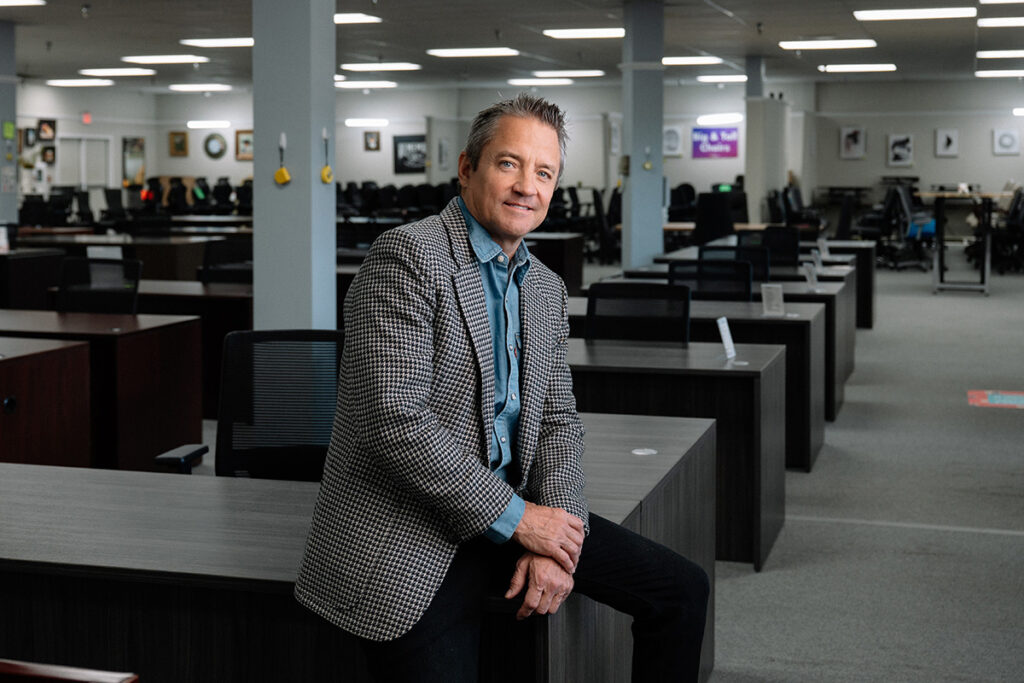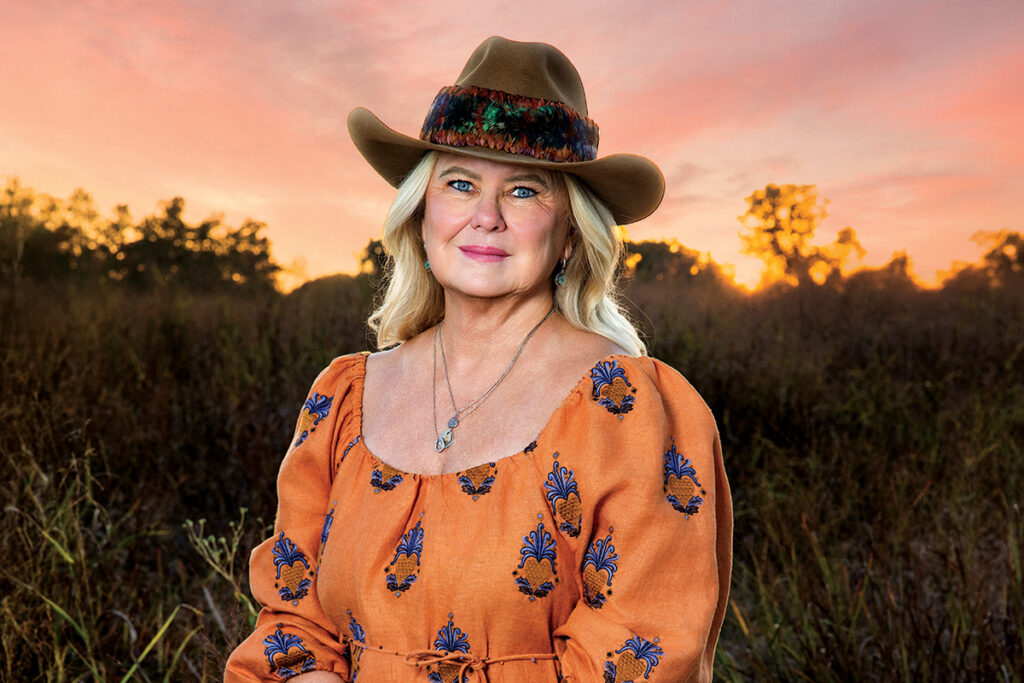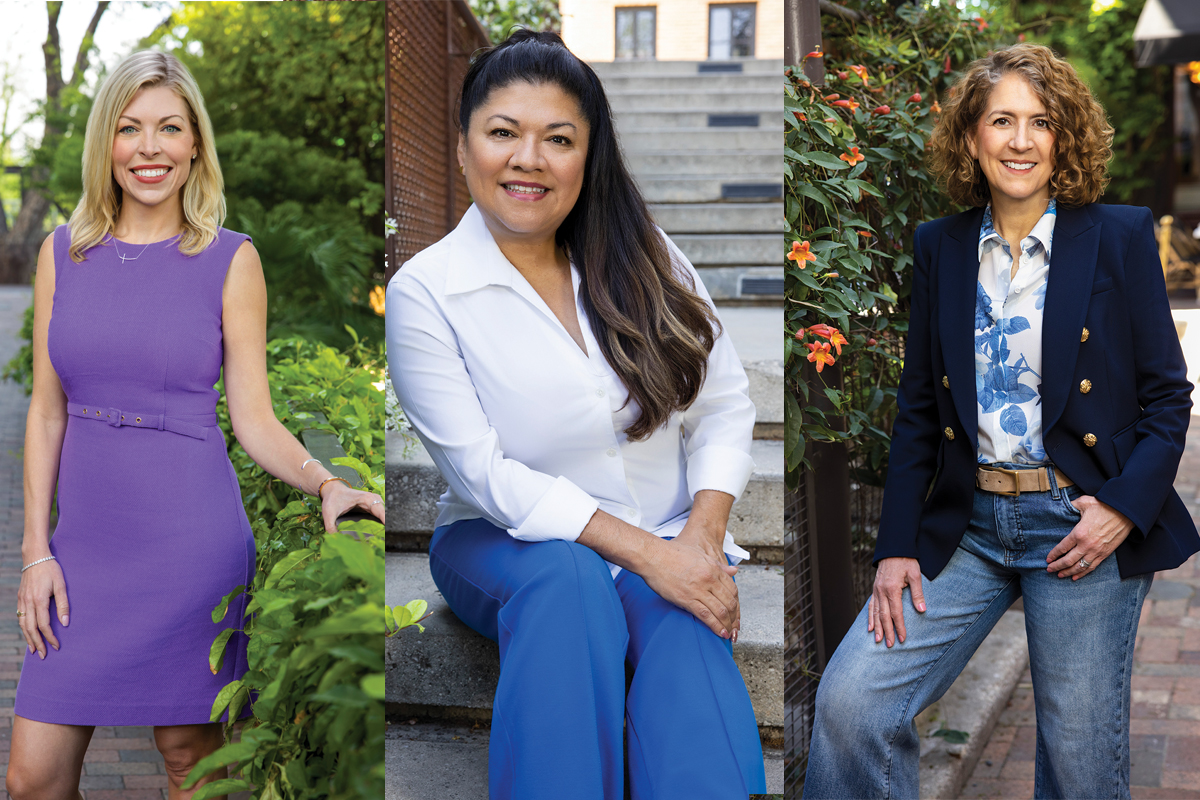
By Michelle Vasquez | Photography by Suzanne Pack
In San Antonio, Megan Legacy, Elizabeth Lutz and Emily De Maria are reshaping what it means to serve community needs through food, healthcare, and human connection.
They lead with heart, strategy, and personal experience, helping others move from survival to stability. From food security to mental health, workforce development to holistic care, their work addresses the root causes of pressing societal challenges.

Megan Legacy
Supporting Community
Megan Legacy, CEO of SA Hope Center, grew up knowing she wanted to give back to her community. Raised in a single-parent household in rural Colorado, Legacy is no stranger to struggle. Early on, she was supported by her small-town community, teachers, counselors, and a school principal. “My support network was this amazing school,” she recalls. At a young age, she recognized the impact of community support, planting the idea that it takes a village to raise hope. That belief continues to guide her work today.
Originally known as the San Antonio Christian Hope Resource Center, the SA Hope Center began as a place to provide emergency support and help with basic needs. “We were serving 5,000 families a month with bags of groceries,” Legacy recalls. Over time, leadership recognized that providing food alone wasn’t enough to address the causes of food insecurity. That insight influenced change in moving from transactional services to a holistic, relationship-based model of care that meets recipients where they are.
Today, the SA Hope Center addresses the root causes of poverty by walking alongside clients and offering wraparound services dealing with workforce readiness, emotional and mental health, financial stability, housing, and other essential needs. “We now have 32 staff members at three locations and numerous interns,” Legacy shared. Their newest campus opened in March 2024 and includes an educational center, mental health offices, a family assistance center, a community garden, a kids club, and a playground. In 2024 alone, they served 8,300 unique individuals.
“According to the 2024 City of San Antonio poverty report, 34% of our working population cannot meet basic needs (beyond the 17% living under the poverty line),” says Legacy. Through programs like job training, financial literacy, case management, and free mental health services, the SA Hope Center is helping people move from surviving to thriving. “The most compassionate, smartest, most effective thing we can do is figure out how to get people connected to living wage employment,” Legacy says.
Whether addressing childcare barriers or healthcare access, the SA Hope mission is to treat every person with dignity and walk with them toward stability and opportunity. “When kids and families don’t have access to basic needs, it continues the cycle of generational poverty,” Legacy observes. Poverty is about a lack of consistent good choices. The choices are: Do you want to buy gas, or are you going to buy the medication?
What keeps Legacy going are the stories shared about helping people get a good job, get their GED, or learn financial literacy. Legacy says, “I believe that everyone has a role in helping others, whether it’s a donation or just your advice or time. The whole world would change if everyone helped just one person.”
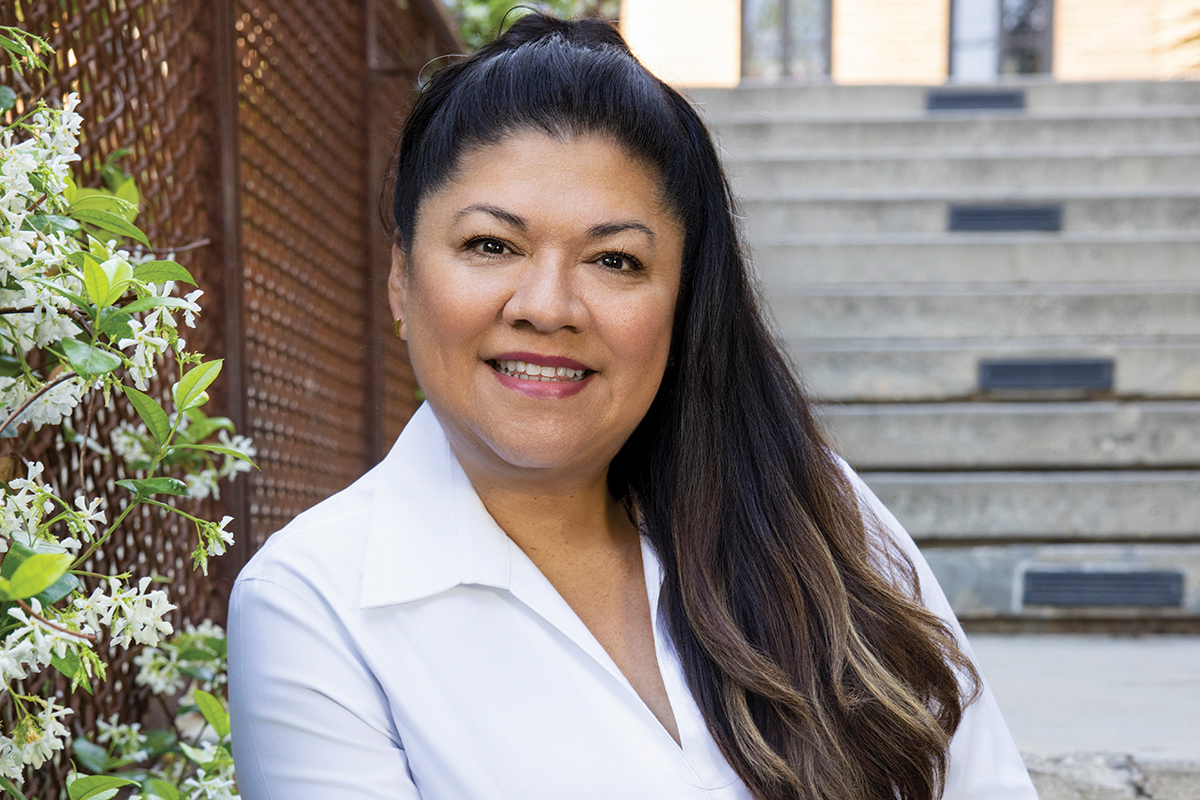
Elizabeth Lutz
Transforming Healthcare
As the Executive Director of the Bexar County Health Collaborative, Elizabeth Lutz is a major figure in transforming healthcare in San Antonio. Born into an immigrant family, her early exposure to life challenges shaped her lifelong commitment to service and advocacy. Reflecting on her roots, Lutz shares, “Growing up, despite our struggles, my mother was always a beacon of generosity. We had very little, but she always found ways to keep us whole and to help others.”
After graduating with a business degree from UIW, she pursued several corporate roles. Despite this trajectory, her passion for helping others never waned, and she always found time to volunteer. She realized that her true calling was in community service. This realization helped redirect her to her leadership role as the Executive Director of the Bexar County Health Collaborative.
Under her guidance, the Collaborative undertakes comprehensive community health needs assessments across Bexar County. These assessments are crucial for identifying the pressing health needs of the community and are used by a range of local organizations for planning and resource allocation. “Our work is about empowering individuals, not just providing temporary aid,” Lutz explains. This thinking is at the center of their care coordination efforts. The vision aims to provide sustainable health improvement by addressing root causes and empowering individuals to make their own choices through the creation of long-term support plans.
The Collaborative’s success is largely due to its partnerships with other organizations. Lutz says, “We act as connectors within the community, enhancing the support systems available to those in need.” This approach not only amplifies the impact of the Health Collaborative but also ensures that resources from each organization are utilized effectively.
Lutz’s personal experiences with adversity fuel her commitment to address poverty and health inequities. She believes that these issues are interconnected and that tackling them is essential for the overall well-being of the city. “Everyone is affected by poverty, whether directly or through its broad impacts on community health and resources,” she notes.
Looking ahead, Lutz is excited about the potential of new projects and collaborations, particularly those aligned with local food banks. These initiatives are crucial for creating a supportive network that can address the challenges faced by the community. The Collaborative’s vision extends beyond documenting immediate healthcare needs to also encompass a holistic approach that includes mental health, nutritional support, and preventive care, addressing root causes of poverty.
Her leadership not only highlights the critical role of community-oriented healthcare but also inspires others to engage in meaningful work with a lasting impact. “Understanding the roles and resources available in our community allows us to create more effective partnerships and better address the needs of our residents,” she explains. This, in turn, leads to stronger, community-driven outcomes.
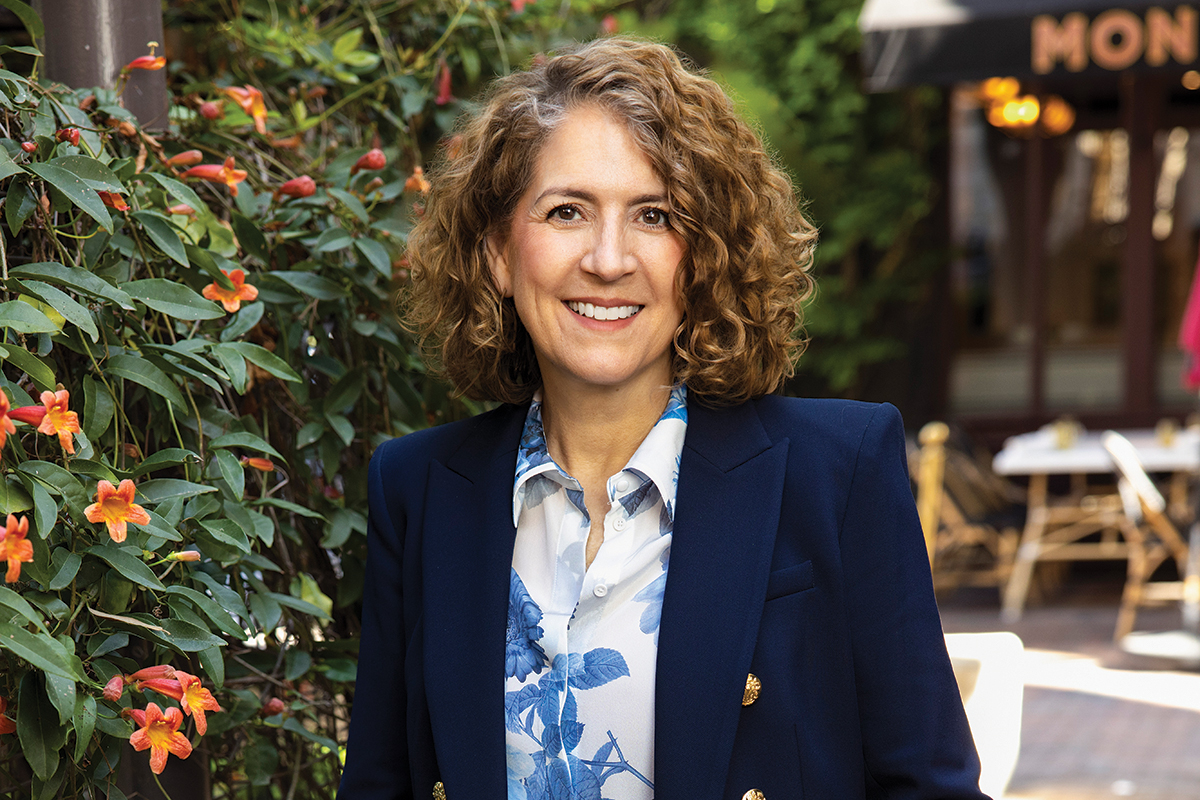
Emily De Maria
Investing in Families Through Food
Emily De Maria’s path to fighting hunger began during the early part of her 25-year nonprofit career when she supported organizations across the country on many national issues. Over time, however, she realized something was missing and yearned for a deeper and more personal connection to the community where she lived.
That desire for local impact led her to United Way in Austin and eventually to the Central Texas Food Bank, where she found her calling. De Maria saw how food could nourish people while also building connection, stability, and empowerment in communities. “There was something special about food and the role that food plays in our lives and communities. I knew I had to be part of the solution,” she said.
Today, De Maria serves as Chief Programs Officer at the San Antonio Food Bank, leading its largest division and overseeing services across a 29-county region. The organization’s work is structured around a strategic framework: Food for Today, Food for Tomorrow, and Food for a Lifetime. This model enables the Food Bank to meet urgent needs while addressing the long-term drivers of food insecurity.
The “Food for Today” programs provide direct food distribution such as meals, groceries, and pantry services, serving seniors, veterans, children, and families in need. “We’re on track this year to serve about 75 million meals,” De Maria noted. “We serve 105,000 people a week.”
“Food for Tomorrow” focuses on helping individuals access benefits such as SNAP. Through outreach and application assistance, the Food Bank delivers the equivalent of 16 million additional meals annually and supports over 16,000 families with benefits enrollment.
The third pillar, “Food for a Lifetime,” invests in long-term change through education and workforce development. Programs like the CHEF nutrition education initiative reached over 100,000 participants last year, while nearly 800 community members completed workforce training.
The Food Bank continuously innovates, using new strategies to expand its reach and impact. From strategic logistics to healthcare partnerships aligned with the “food is medicine” movement, the organization has become a model for others across the country.
Today, that passion is sustained by the people who make the work possible. Volunteers contribute over 233,000 hours annually, or the equivalent of 112 full-time staff. “We really can’t do what we do without the investment of the community,” says De Maria.
It’s clear that service to others in our community is important to De Maria. For her, the fight against hunger is about more than meals. “Food is stability. Food is comfort. Food is community. Food is love,” she reflects. As she sees it, ending hunger strengthens the entire region. “An investment in the issue of hunger is an investment in families. It’s an investment in children. Stable families make for stable, resilient communities.”
Together, Megan Legacy, Elizabeth Lutz and Emily De Maria are addressing complex community challenges with practical solutions and a shared commitment to driving positive change within the San Antonio community.


